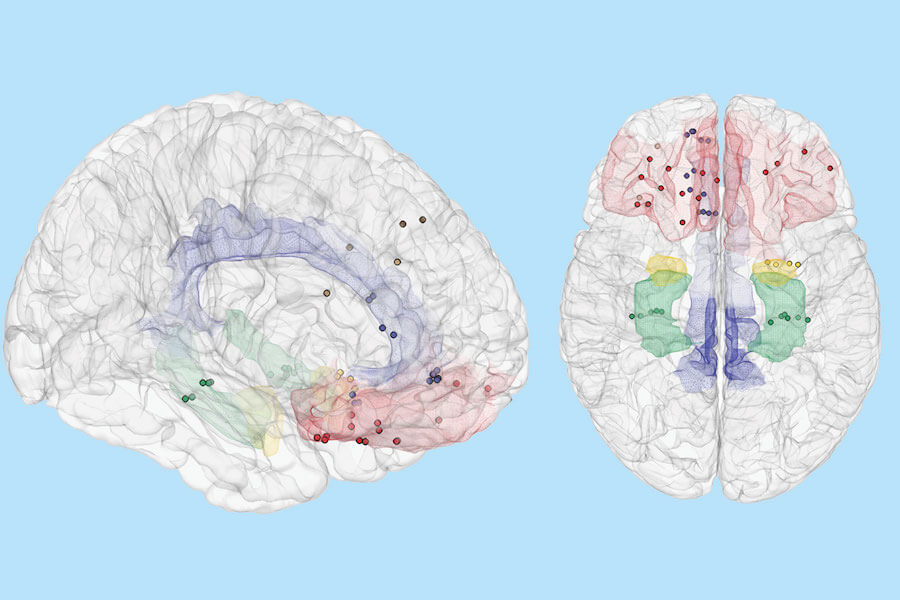Neuroengineering meets neuroethics to address treatment-resistant depression

Dr. Maryam Shanechi. Credit: USC Viterbi
___________________
Is This the Future of Mental Health? (USC Viterbi School of Engineering):
“Brain–machine interfaces (BMIs) provide a direct pathway to the brain to translate brain signals into actions … Below, Shanechi (Note: Maryam Shanechi, PhD, assistant professor of electrical and computer engineering) answers some questions about her work and what the future might hold for our understanding and treatment of mental disorders.
What potential does this hold for the future not just of mental health, but of understanding our brains as a whole?
Neuropsychiatric disorders are a major cause of disability worldwide with depressive disorders being the most disabling among them. About 30% of major depression patients are treatment-resistant – that’s about 5 million people in the US alone. Having an alternative therapy in the form of a BMI that selectively targets brain signals that are the cause of emotional dysfunction can revolutionize treatment for neuropsychiatric disorders.
But BMIs are not just a tool to cure mental disorders, they’re a tool for discovery about mental health in general. BMIs can help us better understand the neural mechanisms of emotion regulation (how we start, stop, or change the trajectory of our emotions). One way to do this is to have participants engage in emotion regulation while we monitor their brain signals to study these fundamental questions.

Brain regions predictive of mood. Credit: Sani et al, Nature Biotechnology, USC Viterbi
Having a BMI that interacts with the brain might sound a little scary to some people. What are you doing to address to moral questions that might arise from this kind of work?
First, we are designing these BMIs as alternative therapy only for patients with very severe cases of depression and anxiety who do not respond to any other therapy. Second, of course, the ethical considerations for human BMIs are extraordinary and should be closely guided by neuro-ethicists. But engineers have a role to play as well. Engineers of every discipline are developing all kinds of tools that are fundamentally changing society and the world as a whole. It’s important for all of us to approach our work, which we do for the good of everyone, from an ethical perspective.
BMI studies in humans are no different and should be performed with strict selection criteria. There are already strict ethical standards in place for epilepsy patients, and this could be a good starting point for how to address future studies on the human brain. As recently stated by Yuste and colleagues, BMIs “must respect and preserve people’s privacy, identity, agency, and equality.”
Dr. Shanechi’s new paper:
Brain–machine interfaces from motor to mood (perspective at Nature Neuroscience)
- Abstract: Brain–machine interfaces (BMIs) create closed-loop control systems that interact with the brain by recording and modulating neural activity and aim to restore lost function, most commonly motor function in paralyzed patients. Moreover, by precisely manipulating the elements within the control loop, motor BMIs have emerged as new scientific tools for investigating the neural mechanisms underlying control and learning. Beyond motor BMIs, recent work highlights the opportunity to develop closed-loop mood BMIs for restoring lost emotional function in neuropsychiatric disorders and for probing the neural mechanisms of emotion regulation. Here we review significant advances toward functional restoration and scientific discovery in motor BMIs that have been guided by a closed-loop control view. By focusing on this unifying view of BMIs and reviewing recent work, we then provide a perspective on how BMIs could extend to the neuropsychiatric domain.
News in Context:
- New report: Empowering 8 Billion Minds via Ethical Development and Adoption of Neurotechnologies
- We need to rethink neuroscience. And you can help us
- 10 highlights from the 2019 SharpBrains Virtual Summit
- Five reasons the future of brain enhancement is digital, pervasive and (hopefully) bright
- Ethical issues raised around deep brain stimulation (DBS) research


